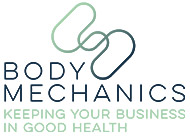Who Should Oversee Health and Wellbeing in the Workplace?
Health and Wellbeing is becoming an increasingly significant issue within the workplace. Employers are placing greater emphasis and investment on supporting employees with various challenges, whether they’re mental, physical, financial or social. This is fantastic news! A frequently asked question however, is who should oversee health and wellbeing in the workplace? Whose responsibility is it?
Some believe the answer is determined by the overall purpose of your health and wellbeing programme. Was it set up to help with high levels of sickness absence? To attract and retain the best talent? Was it set up to address mental health support? Or to educate employees about better nutrition?
While there is merit in this perspective and whatever the core reason for your health and wellbeing programme, we believe consideration needs to be given to the bigger picture.
Traditionally, ‘people issues’ fell to HR. Today, organisations’ are taking a more comprehensive and blended approach to supporting their employees. Health and wellbeing means different things to different people and has many facets, requiring input from different parts of an organisation. For example, HR undoubtedly still has a role to play, but so too do Occupational Health, Facilities Management, Recruitment, Employee Benefits, the C-Suite and so on.
Health and wellbeing is better managed as a cross-organisational initiative with the relevant people and departments feeding into the development, implementation and coordination of the services being offered as a whole. This is arguably one of the main reasons we’ve seen the creation of teams and departments with broader titles like Employee Experience, People Engagement and The Future of Work - they’re focusing on an overarching organisational concept, rather than one specific business function. Health and wellbeing is a cultural workplace movement.
Such a collaborative, blended approach to health and wellbeing means that the coordination of resources and the use of metrics become key in monitoring the services provided, their uptake, the level of investment and the return on that investment. Without metrics, any health and wellbeing programme will fall flat.
Ryan Hopkins, Future of Wellbeing Lead at Deloitte stated that ‘what gets measured gets incentivised and that gets investment. Wellbeing is a science and not an art. Attach a financial value to these measurements to make the C-suite understand and engage. Health and wellbeing has to grow outside HR. It must be a cross-functional approach, an employee experience, addressing issues like wellbeing, inclusion, purpose and satisfaction for it to be effective’
Metrics can be used over time to measure specified key performance indicators, to spot trends and correlations and to further enhance health and wellbeing in the workplace.
Health and wellbeing is slowly, yet increasingly being seen as an initiative that falls to many, rather than just one department. Potentially, this means that health and wellbeing programmes will be more comprehensive and robust, with more employees using the services on offer. Draw and coordinate the resources available to you across your organisation, use metrics to benchmark, monitor and ultimately, secure investment - your employees and your organisation will thank you.
















